Is Coffee Addictive?
– A Critical Look at Coffee and Caffeine –
We love coffee.
The empowering dark liquid is one of the most popular beverages in the world.
Our vast and colorful coffee universe offers us many great drink creations we can choose from.
On top, coffee does not only taste delicious. It also comes with a lot of great health benefits. Some coffee enthusiasts even say that it makes them happier and live longer.
I will be honest with you.
There is hardly a day that I am not drinking coffee. Many times, I even find it hard properly functioning without my morning cup.
Coffee and its caffeine helps us to do many great things. Therefore, I wouldn’t want to miss it.
However, especially one of the main ingredients of coffee, namely caffeine, is considered the most commonly used drug in the world.
In our today’s societies, many people see coffee drinking and its regular caffeine consumption as one of the few, widely acceptable addictions.
Furthermore, some people even argue and find it wrong putting coffee or caffeine in the same category as stronger addictions.
So, is coffee addictive?
This article will share an honest and critical review with you. We will equally highlight both sides of the coin.
Here is everything to know about, whether coffee and caffeine is truly addictive or not.
Coffee and Caffeine
Besides many other compounds, coffee beans naturally contain caffeine.
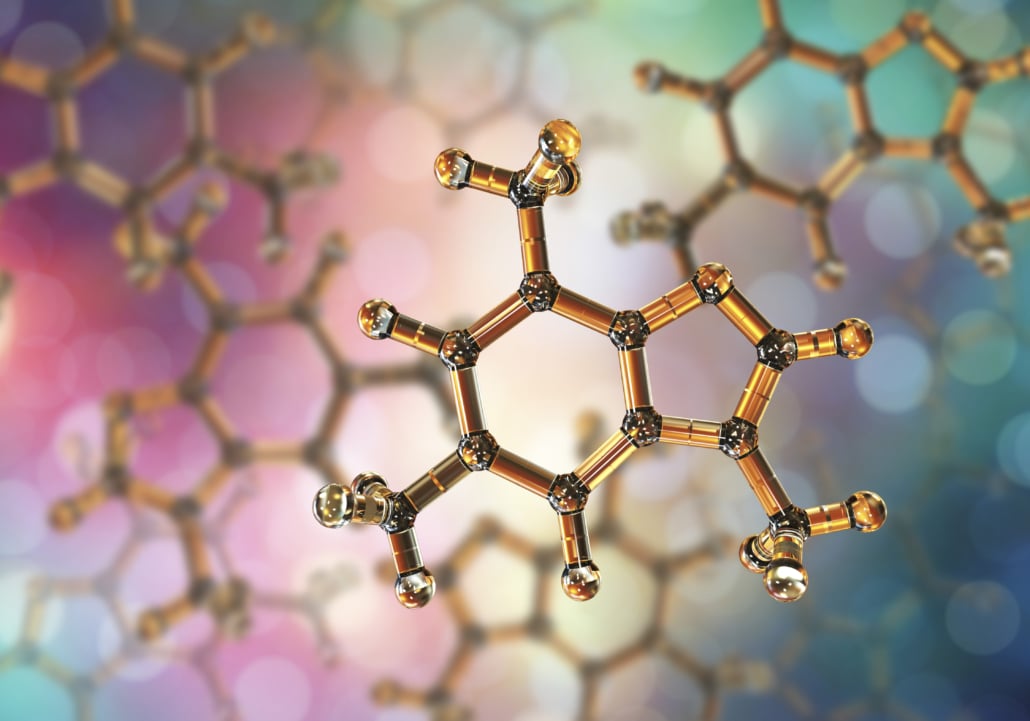
In general, caffeine is a widely known stimulant. You can also find it in smaller amounts in tea, chocolate and soft drinks.
However, in most western diets, coffee is the greatest source of caffeine for many people. This is simply due to modern people consuming a lot of coffee on a regular basis.
Therefore, caffeine is currently the most consumed psychoactive substance.
Overall, if we would blame coffee as a beverage to have any potential addictive properties . It would be because of caffeine.
Health experts are linking caffeine to a variety of effects on our body.
For example, these include the ability to increase our metabolism or enhancement of exercise performance. Furthermore, the stimulant may also boost our mood.
But we all probably know caffeine best for its effects on our brain.
The stimulant not only helps to increase our alertness. Caffeine also supports our concentration and the general motivation to more efficiently work or complete tasks.
Furthermore, the exact amount of caffeine varies in each coffee greatly.
You can either have a cup only containing as little as 30mg. Or, others may even have more than 300mg of caffeine per serving.
On average, we can say that the regular 8-ounce cup (240 ml) contains around 100 mg. This is already more than enough to trigger noticeable effects for most people.
When you have consumed some form of caffeine. It usually takes about 30 to 60 minutes until it reaches its full concentration in our blood.
After, the effects can last between 3 to 9 hours. This depends on the person, its body size and his individual sensitivity towards caffeine.
So, is coffee addictive to just some of us?
Caffeine and Our Brain
Let’s have a look what the caffeine’s effects on our brain are.

Typically, after consuming caffeine our bodies are quickly absorbing it by our gut. After, it is also eventually traveling to our brain.
Once it has arrived. The caffeine has a direct stimulating effect on our brain cells.
This is due to the caffeine’s chemical structure resembling that of adenosine. Furthermore, adenosine is a molecule. And, it has a relaxing effect on our central nervous system.
Thanks to the resemblance, this allows caffeine to fit into adenosine receptors in the brain. Next, the caffeine will block the adenosine molecules.
As a result, this will prevent adenosine from binding them to commonly produce feelings of tiredness.
On the other hand, the then blocked receptors are triggering the release of other natural stimulants in return.
For example, dopamine, which is meant to let us work more effectively then.
Overall, the entire process and caffeine effect will further increase our alertness. And, it will simultaneously reduce feelings of tiredness.
In short, caffeine mostly works in two ways.
- Firstly, it prevents your brain cells from signaling that we feel tired.
- Secondly, caffeine then causes our body to release other natural stimulants. In addition, it will boost their effects.
Here is a quick overview of the usual caffeine’s effects on the brain.
- Alertness
- Well-being
- Concentration
- Self-confidence
- Sociability
- Motivation to work
All of this sounds rather positive for now. Let’s dig deeper.
How is Coffee Addictive?
With all of these seemingly beneficial effects on our brain and behavior. Why does caffeine become addictive?
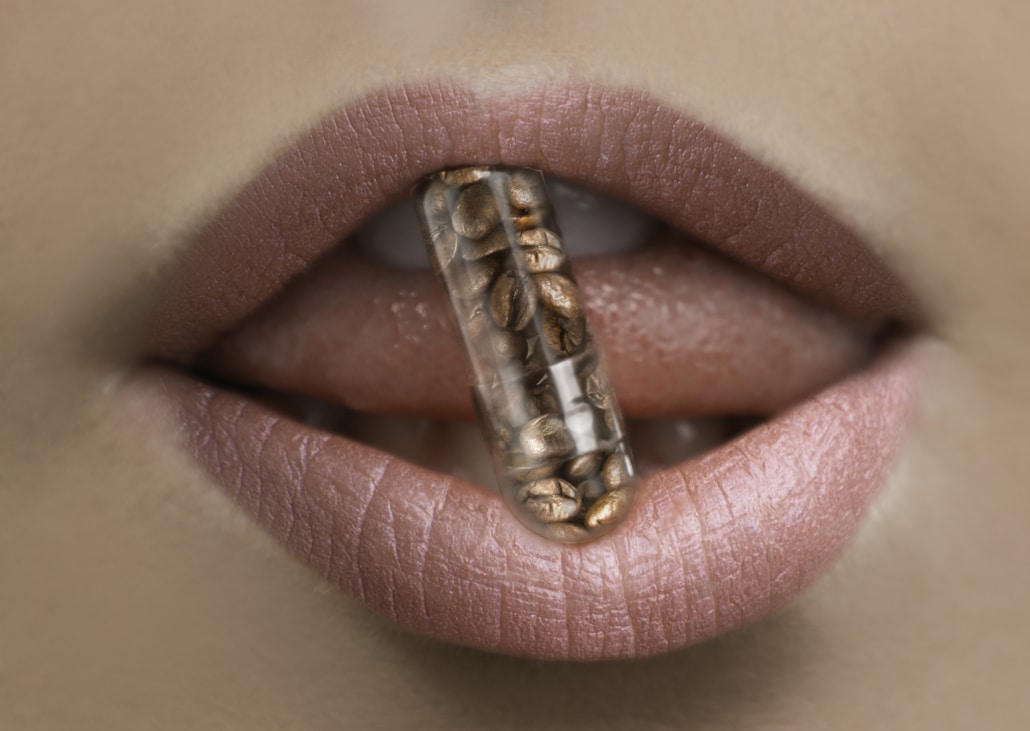
In general and just as with any other addictive substances, caffeine may also lead to physical addiction.
Because, over time and with a regular, sustained caffeine consumption. It can lead to changes in the chemistry of our brain.
For example, your brain may start producing more adenosine receptors than before. This would be a way to compensate for the ones blocked by caffeine.
Since you would have a higher amount of receptors in your brain then. They would require you to consume a higher amount of caffeine. So, you can still reach your desired ‘caffeine boost’.
Typically, quite a lot of regular coffee drinkers are building up a certain caffeine tolerance over time.
However, trying to abruptly cutting off the usual caffeine supply may become difficult then.
Consequently, it will leave your brain with a lot of free receptors for adenosine to bind to. This can furthermore produce strong feelings of tiredness.
Health experts believe this effect to be the main reason behind most caffeine withdrawal symptoms. Especially, if you are completely quitting your caffeine intake from one moment to the other. Meaning, you are going ‘cold turkey’.
Types of Caffeine Addiction
Typically, there are two potentially evolving types when it comes to possible caffeine addiction.

A daily caffeine consumption may create a physical addiction. At some point, your body will just start yearning for it and request more.
Furthermore, the act of very frequently consuming coffee may eventually promote a behavioral addiction as well then.
The caffeine would directly cause the physical addiction. But, the behavioral addiction may not be directly caused by the caffeine consumption itself.
It is rather the potential social environment surrounding us. Where, when, with who and why are we usually drinking our coffee?
These feelings and habits that are accompanying our consumption may encourage us to drink more. Thus, we might repeatedly make or ask for a new cup.
However, it is still unclear how huge the behavioral aspect in regards of potential coffee addiction is. More research still needs to be done here.
When is Coffee Addictive?
Just like with any other substances and their potential abuse. The risk of becoming addicted to coffee and its caffeine actually depends on several factors.
So, the essential question is. When does caffeine become addictive?

First of all, many health experts think that our individual genetics play a central role, too.
It seems very likely that our very own genetic code may additionally influence the potential or degree of addiction.
Furthermore, for regular coffee drinkers the increased risk of triggering addiction is higher.
Because, regular consumers are more likely to undergo the brain changes, which we just talked previously about. Their potential risk of becoming dependent on caffeine is increased.
However, that does not necessarily mean that every regular coffee drinker will automatically get addicted. Again, it all depends on our own tolerance and sensitivity towards caffeine.
Moreover, there are also still a few rather unclear points.
As of now, experts cannot say with absolute certainty how long it takes for our body and brain to physically adapt to daily coffee intake.
But, they do know how long it usually takes until fist withdrawal symptoms appear. They take place as little as 12 to 24 hours after your last caffeine dose.
In addition, these withdrawal symptoms can last for up to 9 days. They commonly include headaches and lack of concentration. As well as drowsiness and irritability.
For some people, first symptoms can already result from reducing your daily caffeine intake by as little as 100 mg per day. This equals about one coffee cup per day.
But, here is also the good news.
Usually, the symptoms and their severity peak within the first 2 days. And after, they will gradually go down again.
Caffeine Addiction Compared to Stronger Addiction
Is there any difference between caffeine addiction and stronger addictions? If yes, what are these?

Overall, different types of addiction may vary in strength.
However, the majority shares some commonly and clinically meaning symptoms. Here is a short overview.
- People may experience a persistent desire or unsuccessful efforts to reduce or control use.
- Consumers will continuously use despite doing mental or physical harm to themselves.
- Addictions will commonly be accompanied and trigger several characteristic withdrawal symptoms.
In many cases, the exact occurring symptoms help health experts to diagnose the exact type of addiction then.
Some recent reports show that this is also including some caffeine users.
Nonetheless, many health experts are still not convinced categorically labeling caffeine as an addictive substance.
In fact, recent surveys revealed that only 58% of addiction professionals believe that people can generally develop a dependence on caffeine.
So, is coffee addictive after all then?
Firstly, other well-known substances stimulate the area of our brain much more.

For example, amphetamines, cocaine and nicotine trigger brain signals like reward, motivation and addiction to a higher degree than caffeine does.
Secondly, for most people and the general public opinion. Regular caffeine consumption only presents little potential harm to ourselves or to our society.
Hence, most illegally classified drugs can cause bigger issues in our communities.
Thirdly, the majority of caffeine consumers usually have little problems controlling their caffeine intake.
So, other addictions may be far less controllable for most people.
This may also be, because high doses of caffeine typically produce unpleasant sensations for us. These may include trembling and jitteriness.
As a result, most people are discouraged to consume more caffeine then. They decide to actively self-limit their caffeine intake. Until they feel better again.
In addition, if you are experiencing any caffeine withdrawal symptoms. Usually, they do not last very long.
And, these symptoms are normally much milder. Especially compared to stronger addictions.
Many people also do not seek or require any medical assistance then.
Out of these reasons, many health experts have doubts officially labelling habitual caffeine use as an ‘addiction’.
Because, they fear making other addictive substances, such as illegal drugs, appear less dangerous or severe then.
For instance, the American Psychiatric Association (APA) only recognizes caffeine withdrawal as a clinical condition.
Here, caffeine addiction is not classified as a substance abuse disorder.
Whereas, the World Health Organization (WHO) does officially recognize caffeine independence as a syndrome.
To sum up, ‘the jury is still out there’. It seems that more research still needs to be done.
Coffee and its Health Benefits
When it comes to one aspect, coffee is very different. Indeed, it is unlike many other addictive substances.

Because, coffee and caffeine consumption can actually have various health benefits.
Here is a quick overview of the most well-researched benefits.
- Improvement of Brain Function – It turns out that drinking coffee regularly improves our alertness, short-term recall and reaction time. On top, it may additionally reduce the risk of Alzheimer’s and Parkinson’s.
- Improvement of Our Mood – Various studies are indicating that caffeine consumers generally have a lower risk of depression and suicide. Many coffee lovers are even saying that it makes them happier, hence live longer.
- Boost of Our Metabolism – Your metabolism may be increased by up to 11% by daily caffeine consumption. And, fat burning may increase by up to 13%.
- Enhancement of Exercise Performance – Overall, coffee can increase our tolerance to fatigue. We just feel less tired than usual. Additionally, it improves our exercise performance. And, coffee can also help making your workouts feel easier.
- Support Against Heart Disease and Diabetes – If you are drinking caffeinated drinks like coffee or tea. You may reduce the risk of heart disease. And, it can help preventing type 2 diabetes in some people.
These health benefits suggest that coffee and caffeine are unlike most other addictive substances.
Coffee can actually provide us with some great health benefits.
However, please always keep in mind to best limit your daily caffeine intake. The recommended average lays around 400 mg of caffeine per day.
This equals around 2 to 4 regular cups of coffee.
General Advices on Coffee Consumption
For which person is coffee addictive or should be careful at least? Who should possibly think about limiting their coffee and caffeine intake?

We just mentioned all of the beneficial aspects coffee can offer us. However, too much caffeine per day may do more harm than good.
It is important to keep this in mind.
This is why many health experts and authorities recommend limiting our intake. The universal advice is to best not surpass 400 mg of caffeine per day. In other words, 4 to 5 cups of coffee.
Plus, it is considered safest to limit the amount per time and dose to no more than 200 mg.
However, certain people should also better completely avoid consuming caffeine. Or, they should at least drastically limit their intake to smaller amounts.
For example, some people suffer from anxiety or insomnia already. Caffeine may worsen these symptoms. This can cause jitteriness, anxiety and heart palpitations.
So, these concerned people should maybe be more cautious.
Furthermore, too much caffeine can also lead to headaches and migraines.
And, some people are metabolizing caffeine rather slowly in their body. These people may have an increased risk of heart attacks then.
Moreover, in case you are either taking muscle relaxants, like Zanaflex, or antidepressants, like Luvox. You may want to consider avoiding caffeine. Otherwise, combined with caffeine, these drugs can increase its effects.
Excessive caffeine consumption can also significantly raise blood pressure levels. However, you may experience this less if consuming caffeine on a regular basis.
Last but certainly not least, pregnant women should act more cautiously as well. They should try to limit their daily intake to no more than 200 mg per day.
The Bottom Line – Is Coffee Addictive?
First of all, whenever you are uncertain and need more advice. Please don’t hesitate to seek help from professional experts or your nearby doctor at least.
Yes, coffee comes with a lot of great benefits, mentally and physically.
But, to some people, coffee and caffeine may have addictive potential. This may lead to independence then.
However, the exact degree of risk and severity is influenced by many factors. It can greatly vary from person to person.
Plus, we can also generally assume the following.
If you are currently consuming caffeine on a regular basis. And, you are not experiencing any harm or negative effects. Then, there is probably only little to worry about for you.
So, in your opinion, is coffee addictive? And, if yes, do you consider it to be in the category of serious addictions?
Or, is coffee addictive but in a more mild and controllable way?
Feel free to share your thoughts and experiences with us.
Until then, stay safe and healthy.
Cheers!
Related Posts
 https://www.siamhillscoffee.com/wp-content/uploads/What-is-Caffeine-–-Is-it-Good-or-Bad-for-Your-Health-–-1.jpg
1414
2121
Siamhillscoffee
https://www.siamhillscoffee.com/wp-content/uploads/coffee-logo.png
Siamhillscoffee2021-04-25 11:19:442021-04-25 11:19:44What is Caffeine? – Is it Good or Bad for Your Health –
https://www.siamhillscoffee.com/wp-content/uploads/What-is-Caffeine-–-Is-it-Good-or-Bad-for-Your-Health-–-1.jpg
1414
2121
Siamhillscoffee
https://www.siamhillscoffee.com/wp-content/uploads/coffee-logo.png
Siamhillscoffee2021-04-25 11:19:442021-04-25 11:19:44What is Caffeine? – Is it Good or Bad for Your Health – https://www.siamhillscoffee.com/wp-content/uploads/How-Much-Caffeine-is-in-a-Cup-of-Coffee-All-You-Need-to-Know-–-1.jpg
1414
2121
Siamhillscoffee
https://www.siamhillscoffee.com/wp-content/uploads/coffee-logo.png
Siamhillscoffee2021-04-25 11:10:082021-04-25 11:10:08How Much Caffeine is in a Cup of Coffee – All You Need to Know –
https://www.siamhillscoffee.com/wp-content/uploads/How-Much-Caffeine-is-in-a-Cup-of-Coffee-All-You-Need-to-Know-–-1.jpg
1414
2121
Siamhillscoffee
https://www.siamhillscoffee.com/wp-content/uploads/coffee-logo.png
Siamhillscoffee2021-04-25 11:10:082021-04-25 11:10:08How Much Caffeine is in a Cup of Coffee – All You Need to Know – https://www.siamhillscoffee.com/wp-content/uploads/Coffee-and-Antioxidants-A-Complete-Overview-–-1.jpg
1413
2122
Siamhillscoffee
https://www.siamhillscoffee.com/wp-content/uploads/coffee-logo.png
Siamhillscoffee2021-03-14 03:52:072021-03-14 03:52:07Coffee and Antioxidants – A Complete Overview –
https://www.siamhillscoffee.com/wp-content/uploads/Coffee-and-Antioxidants-A-Complete-Overview-–-1.jpg
1413
2122
Siamhillscoffee
https://www.siamhillscoffee.com/wp-content/uploads/coffee-logo.png
Siamhillscoffee2021-03-14 03:52:072021-03-14 03:52:07Coffee and Antioxidants – A Complete Overview – https://www.siamhillscoffee.com/wp-content/uploads/Caffeine-Overdose-–-A-Review-on-How-Much-is-Too-Much-–-1.jpg
1414
2121
Siamhillscoffee
https://www.siamhillscoffee.com/wp-content/uploads/coffee-logo.png
Siamhillscoffee2021-03-14 03:44:312021-03-14 03:44:31Caffeine Overdose – A Review on How Much is Too Much –
https://www.siamhillscoffee.com/wp-content/uploads/Caffeine-Overdose-–-A-Review-on-How-Much-is-Too-Much-–-1.jpg
1414
2121
Siamhillscoffee
https://www.siamhillscoffee.com/wp-content/uploads/coffee-logo.png
Siamhillscoffee2021-03-14 03:44:312021-03-14 03:44:31Caffeine Overdose – A Review on How Much is Too Much –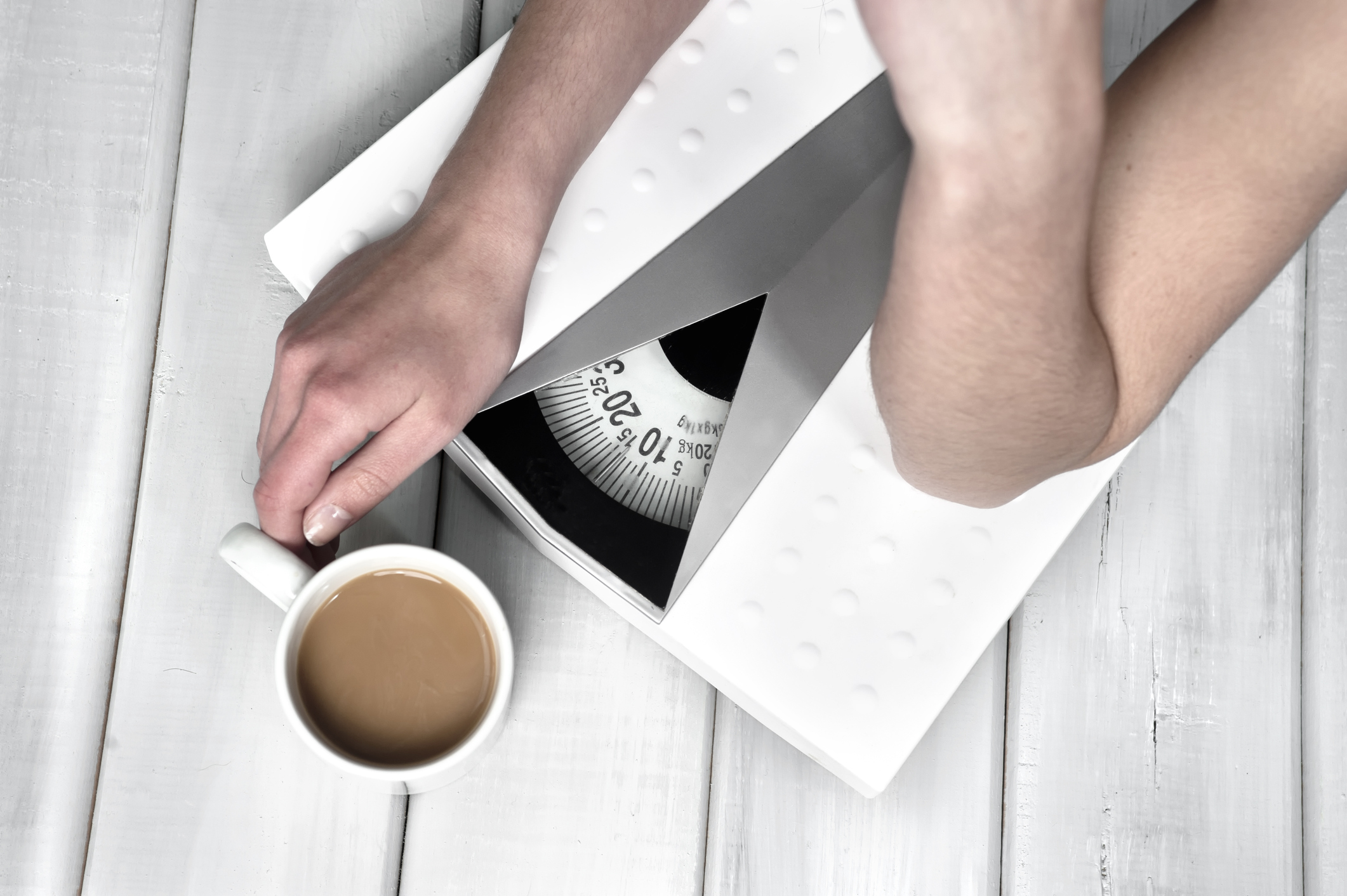 https://www.siamhillscoffee.com/wp-content/uploads/Lose-Weight-with-Coffee-–-Does-Coffee-Help-Burning-Fat-–-1.jpg
1412
2122
Siamhillscoffee
https://www.siamhillscoffee.com/wp-content/uploads/coffee-logo.png
Siamhillscoffee2021-03-14 03:34:242021-03-14 03:34:24Lose Weight with Coffee – Does Coffee Help Burning Fat? –
https://www.siamhillscoffee.com/wp-content/uploads/Lose-Weight-with-Coffee-–-Does-Coffee-Help-Burning-Fat-–-1.jpg
1412
2122
Siamhillscoffee
https://www.siamhillscoffee.com/wp-content/uploads/coffee-logo.png
Siamhillscoffee2021-03-14 03:34:242021-03-14 03:34:24Lose Weight with Coffee – Does Coffee Help Burning Fat? –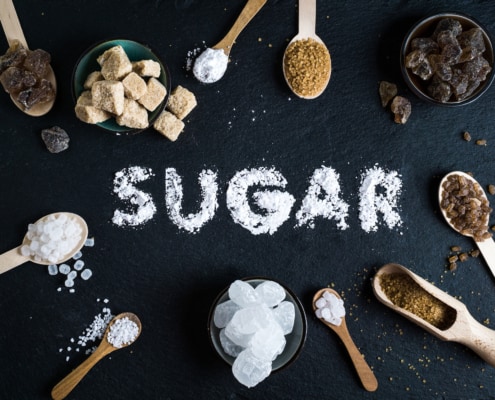 https://www.siamhillscoffee.com/wp-content/uploads/Natural-Coffee-Sweeteners-–-Best-Natural-Sugar-Substitutes-For-You-–-1.jpg
1502
1997
Siamhillscoffee
https://www.siamhillscoffee.com/wp-content/uploads/coffee-logo.png
Siamhillscoffee2021-02-20 05:43:182021-03-03 07:41:19Natural Coffee Sweeteners – Best Natural Sugar Substitutes For You –
https://www.siamhillscoffee.com/wp-content/uploads/Natural-Coffee-Sweeteners-–-Best-Natural-Sugar-Substitutes-For-You-–-1.jpg
1502
1997
Siamhillscoffee
https://www.siamhillscoffee.com/wp-content/uploads/coffee-logo.png
Siamhillscoffee2021-02-20 05:43:182021-03-03 07:41:19Natural Coffee Sweeteners – Best Natural Sugar Substitutes For You –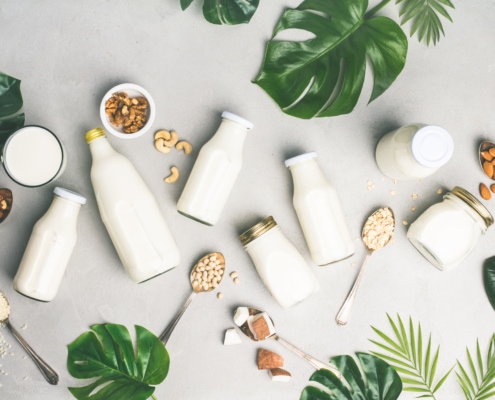 https://www.siamhillscoffee.com/wp-content/uploads/Great-Milk-Alternatives-–-Your-9-Best-Nondairy-Substitutes-for-Milk-–-1-scaled.jpg
1707
2560
Siamhillscoffee
https://www.siamhillscoffee.com/wp-content/uploads/coffee-logo.png
Siamhillscoffee2021-02-20 05:26:492021-03-03 10:47:18Great Milk Alternatives – Your 9 Best Nondairy Substitutes for Milk –
https://www.siamhillscoffee.com/wp-content/uploads/Great-Milk-Alternatives-–-Your-9-Best-Nondairy-Substitutes-for-Milk-–-1-scaled.jpg
1707
2560
Siamhillscoffee
https://www.siamhillscoffee.com/wp-content/uploads/coffee-logo.png
Siamhillscoffee2021-02-20 05:26:492021-03-03 10:47:18Great Milk Alternatives – Your 9 Best Nondairy Substitutes for Milk – https://www.siamhillscoffee.com/wp-content/uploads/Make-Your-Coffee-Healthy-–-Best-10-Ways-For-A-Better-Coffee-Experience-–-1.jpg
1414
2121
Siamhillscoffee
https://www.siamhillscoffee.com/wp-content/uploads/coffee-logo.png
Siamhillscoffee2021-02-12 08:13:182021-03-03 10:57:16Make Your Coffee Healthy – Best 10 Ways For A Better Coffee Experience –
https://www.siamhillscoffee.com/wp-content/uploads/Make-Your-Coffee-Healthy-–-Best-10-Ways-For-A-Better-Coffee-Experience-–-1.jpg
1414
2121
Siamhillscoffee
https://www.siamhillscoffee.com/wp-content/uploads/coffee-logo.png
Siamhillscoffee2021-02-12 08:13:182021-03-03 10:57:16Make Your Coffee Healthy – Best 10 Ways For A Better Coffee Experience – https://www.siamhillscoffee.com/wp-content/uploads/10-Best-Ways-to-Eat-Less-Sugar-–-How-to-Cut-Down-on-Sugar-–-1-scaled.jpg
1709
2560
Siamhillscoffee
https://www.siamhillscoffee.com/wp-content/uploads/coffee-logo.png
Siamhillscoffee2021-02-12 08:07:142021-03-03 10:58:4810 Best Ways to Eat Less Sugar – How to Cut Down on Sugar –
https://www.siamhillscoffee.com/wp-content/uploads/10-Best-Ways-to-Eat-Less-Sugar-–-How-to-Cut-Down-on-Sugar-–-1-scaled.jpg
1709
2560
Siamhillscoffee
https://www.siamhillscoffee.com/wp-content/uploads/coffee-logo.png
Siamhillscoffee2021-02-12 08:07:142021-03-03 10:58:4810 Best Ways to Eat Less Sugar – How to Cut Down on Sugar – https://www.siamhillscoffee.com/wp-content/uploads/Decaf-Coffee-–-Is-Decaffeinated-Coffee-Good-or-Bad-–-1.jpg
1415
2120
Siamhillscoffee
https://www.siamhillscoffee.com/wp-content/uploads/coffee-logo.png
Siamhillscoffee2021-02-12 07:57:572021-03-03 11:01:42Decaf Coffee – Is Decaffeinated Coffee Good or Bad? –
https://www.siamhillscoffee.com/wp-content/uploads/Decaf-Coffee-–-Is-Decaffeinated-Coffee-Good-or-Bad-–-1.jpg
1415
2120
Siamhillscoffee
https://www.siamhillscoffee.com/wp-content/uploads/coffee-logo.png
Siamhillscoffee2021-02-12 07:57:572021-03-03 11:01:42Decaf Coffee – Is Decaffeinated Coffee Good or Bad? – https://www.siamhillscoffee.com/wp-content/uploads/Coffee-Acidity-–-Everything-You-Need-to-Know-–-1-scaled.jpg
1707
2560
Siamhillscoffee
https://www.siamhillscoffee.com/wp-content/uploads/coffee-logo.png
Siamhillscoffee2021-02-12 07:52:442021-03-03 11:02:58Coffee Acidity – Everything You Need to Know –
https://www.siamhillscoffee.com/wp-content/uploads/Coffee-Acidity-–-Everything-You-Need-to-Know-–-1-scaled.jpg
1707
2560
Siamhillscoffee
https://www.siamhillscoffee.com/wp-content/uploads/coffee-logo.png
Siamhillscoffee2021-02-12 07:52:442021-03-03 11:02:58Coffee Acidity – Everything You Need to Know – https://www.siamhillscoffee.com/wp-content/uploads/10-Best-Coffee-Protein-Shakes-–-Make-Your-Morning-Better-–-1.jpg
960
640
Siamhillscoffee
https://www.siamhillscoffee.com/wp-content/uploads/coffee-logo.png
Siamhillscoffee2021-02-12 07:48:282021-03-03 11:04:1910 Best Coffee Protein Shakes – Make Your Morning Better –
https://www.siamhillscoffee.com/wp-content/uploads/10-Best-Coffee-Protein-Shakes-–-Make-Your-Morning-Better-–-1.jpg
960
640
Siamhillscoffee
https://www.siamhillscoffee.com/wp-content/uploads/coffee-logo.png
Siamhillscoffee2021-02-12 07:48:282021-03-03 11:04:1910 Best Coffee Protein Shakes – Make Your Morning Better – https://www.siamhillscoffee.com/wp-content/uploads/We-Love-Coffee-–-10-Best-Reasons-Why-Coffee-is-Good-For-You-1-scaled.jpg
1707
2560
Siamhillscoffee
https://www.siamhillscoffee.com/wp-content/uploads/coffee-logo.png
Siamhillscoffee2021-02-12 07:43:082021-03-03 11:05:47We Love Coffee – 10 Best Reasons Why Coffee is Good For You –
https://www.siamhillscoffee.com/wp-content/uploads/We-Love-Coffee-–-10-Best-Reasons-Why-Coffee-is-Good-For-You-1-scaled.jpg
1707
2560
Siamhillscoffee
https://www.siamhillscoffee.com/wp-content/uploads/coffee-logo.png
Siamhillscoffee2021-02-12 07:43:082021-03-03 11:05:47We Love Coffee – 10 Best Reasons Why Coffee is Good For You – https://www.siamhillscoffee.com/wp-content/uploads/What-is-Chicory-Coffee-–-A-Healthy-Alternative-to-Coffee-or-Not-–-1-scaled.jpg
1747
2560
Siamhillscoffee
https://www.siamhillscoffee.com/wp-content/uploads/coffee-logo.png
Siamhillscoffee2021-02-12 07:37:062021-03-03 11:06:59What is Chicory Coffee? – A Healthy Alternative to Coffee or Not –
https://www.siamhillscoffee.com/wp-content/uploads/What-is-Chicory-Coffee-–-A-Healthy-Alternative-to-Coffee-or-Not-–-1-scaled.jpg
1747
2560
Siamhillscoffee
https://www.siamhillscoffee.com/wp-content/uploads/coffee-logo.png
Siamhillscoffee2021-02-12 07:37:062021-03-03 11:06:59What is Chicory Coffee? – A Healthy Alternative to Coffee or Not – https://www.siamhillscoffee.com/wp-content/uploads/10-Best-Natural-Sugar-Substitutes-–-Your-Healthier-Sugar-Alternatives-to-Try-–-1-scaled.jpg
1707
2560
Siamhillscoffee
https://www.siamhillscoffee.com/wp-content/uploads/coffee-logo.png
Siamhillscoffee2021-02-12 07:32:372021-03-03 11:08:1810 Best Natural Sugar Substitutes – Your Healthier Sugar Alternatives to Try –
https://www.siamhillscoffee.com/wp-content/uploads/10-Best-Natural-Sugar-Substitutes-–-Your-Healthier-Sugar-Alternatives-to-Try-–-1-scaled.jpg
1707
2560
Siamhillscoffee
https://www.siamhillscoffee.com/wp-content/uploads/coffee-logo.png
Siamhillscoffee2021-02-12 07:32:372021-03-03 11:08:1810 Best Natural Sugar Substitutes – Your Healthier Sugar Alternatives to Try –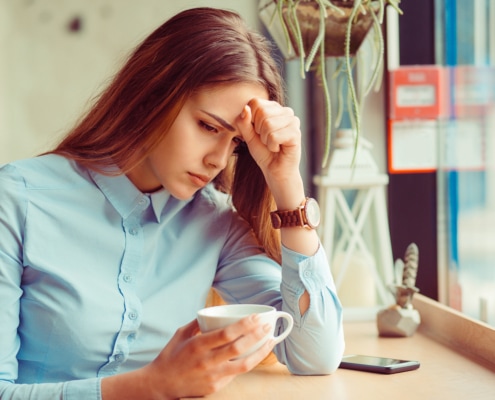 https://www.siamhillscoffee.com/wp-content/uploads/Caffeine-Withdrawal-and-Headaches-–-7-Tips-for-Relief-and-More-–-1-scaled.jpg
1707
2560
Siamhillscoffee
https://www.siamhillscoffee.com/wp-content/uploads/coffee-logo.png
Siamhillscoffee2021-02-12 07:16:582021-03-03 11:12:51Caffeine Withdrawal and Headaches – 7 Tips for Relief and More –
https://www.siamhillscoffee.com/wp-content/uploads/Caffeine-Withdrawal-and-Headaches-–-7-Tips-for-Relief-and-More-–-1-scaled.jpg
1707
2560
Siamhillscoffee
https://www.siamhillscoffee.com/wp-content/uploads/coffee-logo.png
Siamhillscoffee2021-02-12 07:16:582021-03-03 11:12:51Caffeine Withdrawal and Headaches – 7 Tips for Relief and More – https://www.siamhillscoffee.com/wp-content/uploads/20-Best-Ground-Coffee-Recipes-9.jpg
896
640
Siamhillscoffee
https://www.siamhillscoffee.com/wp-content/uploads/coffee-logo.png
Siamhillscoffee2021-02-12 07:10:502021-03-03 11:14:2220 Best Ground Coffee Recipes – Make Delicious Food With Coffee –
https://www.siamhillscoffee.com/wp-content/uploads/20-Best-Ground-Coffee-Recipes-9.jpg
896
640
Siamhillscoffee
https://www.siamhillscoffee.com/wp-content/uploads/coffee-logo.png
Siamhillscoffee2021-02-12 07:10:502021-03-03 11:14:2220 Best Ground Coffee Recipes – Make Delicious Food With Coffee – https://www.siamhillscoffee.com/wp-content/uploads/15-Great-Coffee-Breakfast-Smoothies-–-Simply-Delicious-Ways-to-Boost-Your-Morning-–14.jpg
1050
700
Siamhillscoffee
https://www.siamhillscoffee.com/wp-content/uploads/coffee-logo.png
Siamhillscoffee2021-02-12 06:52:492021-03-03 11:46:4615 Great Coffee Breakfast Smoothies – Delicious Ways to Boost Your Morning –
https://www.siamhillscoffee.com/wp-content/uploads/15-Great-Coffee-Breakfast-Smoothies-–-Simply-Delicious-Ways-to-Boost-Your-Morning-–14.jpg
1050
700
Siamhillscoffee
https://www.siamhillscoffee.com/wp-content/uploads/coffee-logo.png
Siamhillscoffee2021-02-12 06:52:492021-03-03 11:46:4615 Great Coffee Breakfast Smoothies – Delicious Ways to Boost Your Morning – https://www.siamhillscoffee.com/wp-content/uploads/Caffeine-Improves-Exercise-Performance-–-Does-Coffee-Make-Fit-–-1-scaled.jpg
1707
2560
Siamhillscoffee
https://www.siamhillscoffee.com/wp-content/uploads/coffee-logo.png
Siamhillscoffee2021-02-12 05:58:522021-03-03 11:49:58Caffeine Improves Exercise Performance – Does Coffee Make Fit? –
https://www.siamhillscoffee.com/wp-content/uploads/Caffeine-Improves-Exercise-Performance-–-Does-Coffee-Make-Fit-–-1-scaled.jpg
1707
2560
Siamhillscoffee
https://www.siamhillscoffee.com/wp-content/uploads/coffee-logo.png
Siamhillscoffee2021-02-12 05:58:522021-03-03 11:49:58Caffeine Improves Exercise Performance – Does Coffee Make Fit? – https://www.siamhillscoffee.com/wp-content/uploads/Is-Coffee-Addictive-–-A-Critical-Look-at-Coffee-and-Caffeine-–-1-scaled.jpg
1707
2560
Siamhillscoffee
https://www.siamhillscoffee.com/wp-content/uploads/coffee-logo.png
Siamhillscoffee2021-02-12 05:38:012021-03-03 11:55:00Is Coffee Addictive? – A Critical Look at Coffee and Caffeine –
https://www.siamhillscoffee.com/wp-content/uploads/Is-Coffee-Addictive-–-A-Critical-Look-at-Coffee-and-Caffeine-–-1-scaled.jpg
1707
2560
Siamhillscoffee
https://www.siamhillscoffee.com/wp-content/uploads/coffee-logo.png
Siamhillscoffee2021-02-12 05:38:012021-03-03 11:55:00Is Coffee Addictive? – A Critical Look at Coffee and Caffeine –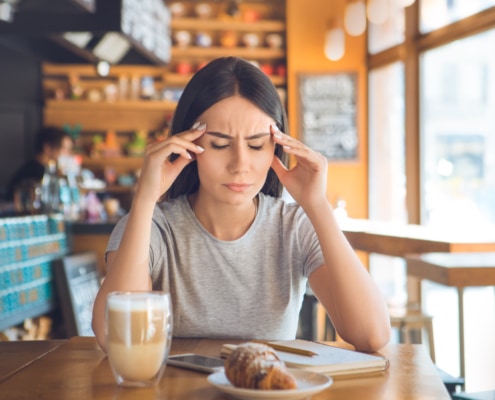 https://www.siamhillscoffee.com/wp-content/uploads/Caffeine-and-Migraines-–-Does-Caffeine-Trigger-or-Treat-Migraines-–-2-scaled.jpg
1707
2560
Siamhillscoffee
https://www.siamhillscoffee.com/wp-content/uploads/coffee-logo.png
Siamhillscoffee2021-02-12 05:06:562021-03-03 12:03:40Caffeine and Migraines – Does Caffeine Trigger or Treat Migraines –
https://www.siamhillscoffee.com/wp-content/uploads/Caffeine-and-Migraines-–-Does-Caffeine-Trigger-or-Treat-Migraines-–-2-scaled.jpg
1707
2560
Siamhillscoffee
https://www.siamhillscoffee.com/wp-content/uploads/coffee-logo.png
Siamhillscoffee2021-02-12 05:06:562021-03-03 12:03:40Caffeine and Migraines – Does Caffeine Trigger or Treat Migraines – https://www.siamhillscoffee.com/wp-content/uploads/Caffeine-And-Your-Body-Everything-to-Know-About-Caffeine-Effects-–-2-scaled.jpg
1707
2560
Siamhillscoffee
https://www.siamhillscoffee.com/wp-content/uploads/coffee-logo.png
Siamhillscoffee2021-02-12 04:44:592021-03-03 12:09:01Caffeine And Your Body – Everything to Know About Caffeine Effects –
https://www.siamhillscoffee.com/wp-content/uploads/Caffeine-And-Your-Body-Everything-to-Know-About-Caffeine-Effects-–-2-scaled.jpg
1707
2560
Siamhillscoffee
https://www.siamhillscoffee.com/wp-content/uploads/coffee-logo.png
Siamhillscoffee2021-02-12 04:44:592021-03-03 12:09:01Caffeine And Your Body – Everything to Know About Caffeine Effects – https://www.siamhillscoffee.com/wp-content/uploads/How-To-Open-A-Coffee-Shop-The-10-Most-Important-Steps-1-scaled.jpg
1708
2560
Siamhillscoffee
https://www.siamhillscoffee.com/wp-content/uploads/coffee-logo.png
Siamhillscoffee2021-02-12 04:37:232021-03-03 12:10:33How To Open A Coffee Shop – The 10 Most Important Steps
https://www.siamhillscoffee.com/wp-content/uploads/How-To-Open-A-Coffee-Shop-The-10-Most-Important-Steps-1-scaled.jpg
1708
2560
Siamhillscoffee
https://www.siamhillscoffee.com/wp-content/uploads/coffee-logo.png
Siamhillscoffee2021-02-12 04:37:232021-03-03 12:10:33How To Open A Coffee Shop – The 10 Most Important Steps https://www.siamhillscoffee.com/wp-content/uploads/How-To-Sell-Coffee-Online-–-Open-Your-Own-Online-Coffee-Shop-1-scaled.jpg
1697
2560
Siamhillscoffee
https://www.siamhillscoffee.com/wp-content/uploads/coffee-logo.png
Siamhillscoffee2021-02-12 04:32:292021-03-03 12:12:06How To Sell Coffee Online – Open Your Own Online Coffee Shop
https://www.siamhillscoffee.com/wp-content/uploads/How-To-Sell-Coffee-Online-–-Open-Your-Own-Online-Coffee-Shop-1-scaled.jpg
1697
2560
Siamhillscoffee
https://www.siamhillscoffee.com/wp-content/uploads/coffee-logo.png
Siamhillscoffee2021-02-12 04:32:292021-03-03 12:12:06How To Sell Coffee Online – Open Your Own Online Coffee Shop https://www.siamhillscoffee.com/wp-content/uploads/Caffeine-and-Depression-Does-Caffeine-Help-with-Depression-–-1-scaled.jpg
1707
2560
Siamhillscoffee
https://www.siamhillscoffee.com/wp-content/uploads/coffee-logo.png
Siamhillscoffee2021-02-12 04:23:222021-03-03 12:13:42Caffeine and Depression – Does Caffeine Help with Depression? –
https://www.siamhillscoffee.com/wp-content/uploads/Caffeine-and-Depression-Does-Caffeine-Help-with-Depression-–-1-scaled.jpg
1707
2560
Siamhillscoffee
https://www.siamhillscoffee.com/wp-content/uploads/coffee-logo.png
Siamhillscoffee2021-02-12 04:23:222021-03-03 12:13:42Caffeine and Depression – Does Caffeine Help with Depression? – https://www.siamhillscoffee.com/wp-content/uploads/20-Best-Coffee-Dessert-Recipes-–-Your-Perfectly-Delicious-Coffee-Treat-–-1-scaled.jpg
1708
2560
Siamhillscoffee
https://www.siamhillscoffee.com/wp-content/uploads/coffee-logo.png
Siamhillscoffee2021-02-12 04:13:312021-03-03 12:17:1120 Best Coffee Dessert Recipes – Your Perfectly Delicious Coffee Treat –
https://www.siamhillscoffee.com/wp-content/uploads/20-Best-Coffee-Dessert-Recipes-–-Your-Perfectly-Delicious-Coffee-Treat-–-1-scaled.jpg
1708
2560
Siamhillscoffee
https://www.siamhillscoffee.com/wp-content/uploads/coffee-logo.png
Siamhillscoffee2021-02-12 04:13:312021-03-03 12:17:1120 Best Coffee Dessert Recipes – Your Perfectly Delicious Coffee Treat – https://www.siamhillscoffee.com/wp-content/uploads/Coffee-and-Caffeine-–-How-Much-Caffeine-is-Okay-for-You-–-1-scaled.jpg
1709
2560
Siamhillscoffee
https://www.siamhillscoffee.com/wp-content/uploads/coffee-logo.png
Siamhillscoffee2021-02-12 03:54:492021-03-03 12:25:58Coffee and Caffeine – How Much Caffeine is Okay for You? –
https://www.siamhillscoffee.com/wp-content/uploads/Coffee-and-Caffeine-–-How-Much-Caffeine-is-Okay-for-You-–-1-scaled.jpg
1709
2560
Siamhillscoffee
https://www.siamhillscoffee.com/wp-content/uploads/coffee-logo.png
Siamhillscoffee2021-02-12 03:54:492021-03-03 12:25:58Coffee and Caffeine – How Much Caffeine is Okay for You? – https://www.siamhillscoffee.com/wp-content/uploads/Make-Your-Coffee-Better-–-6-Fun-Ways-to-Boost-Your-Coffee-–-1-scaled.jpg
1709
2560
Siamhillscoffee
https://www.siamhillscoffee.com/wp-content/uploads/coffee-logo.png
Siamhillscoffee2021-02-12 03:45:112021-03-03 12:29:07Make Your Coffee Better – 6 Fun Ways to Boost Your Coffee –
https://www.siamhillscoffee.com/wp-content/uploads/Make-Your-Coffee-Better-–-6-Fun-Ways-to-Boost-Your-Coffee-–-1-scaled.jpg
1709
2560
Siamhillscoffee
https://www.siamhillscoffee.com/wp-content/uploads/coffee-logo.png
Siamhillscoffee2021-02-12 03:45:112021-03-03 12:29:07Make Your Coffee Better – 6 Fun Ways to Boost Your Coffee – https://www.siamhillscoffee.com/wp-content/uploads/Eating-Coffee-Beans-–-Yummy-Healthy-or-Stupid-–-1.jpg
1414
2121
Siamhillscoffee
https://www.siamhillscoffee.com/wp-content/uploads/coffee-logo.png
Siamhillscoffee2021-02-12 03:04:352021-03-03 12:37:32Eating Coffee Beans – Yummy, Healthy or Stupid –
https://www.siamhillscoffee.com/wp-content/uploads/Eating-Coffee-Beans-–-Yummy-Healthy-or-Stupid-–-1.jpg
1414
2121
Siamhillscoffee
https://www.siamhillscoffee.com/wp-content/uploads/coffee-logo.png
Siamhillscoffee2021-02-12 03:04:352021-03-03 12:37:32Eating Coffee Beans – Yummy, Healthy or Stupid – https://www.siamhillscoffee.com/wp-content/uploads/Caffeine-Side-Effects-–-10-Side-Effects-of-Too-Much-Caffeine-–-1.jpg
1414
2119
Siamhillscoffee
https://www.siamhillscoffee.com/wp-content/uploads/coffee-logo.png
Siamhillscoffee2021-02-12 02:58:352021-03-03 12:39:16Caffeine Side Effects – 10 Side Effects of Too Much Caffeine –
https://www.siamhillscoffee.com/wp-content/uploads/Caffeine-Side-Effects-–-10-Side-Effects-of-Too-Much-Caffeine-–-1.jpg
1414
2119
Siamhillscoffee
https://www.siamhillscoffee.com/wp-content/uploads/coffee-logo.png
Siamhillscoffee2021-02-12 02:58:352021-03-03 12:39:16Caffeine Side Effects – 10 Side Effects of Too Much Caffeine – https://www.siamhillscoffee.com/wp-content/uploads/A-Coffee-Journey-–-10-Steps-From-the-Seed-to-Your-Cup-–-1-scaled.jpg
1700
2560
Siamhillscoffee
https://www.siamhillscoffee.com/wp-content/uploads/coffee-logo.png
Siamhillscoffee2021-02-12 02:31:102021-02-20 14:09:30A Coffee Journey – 10 Steps From the Seed to Your Cup –
https://www.siamhillscoffee.com/wp-content/uploads/A-Coffee-Journey-–-10-Steps-From-the-Seed-to-Your-Cup-–-1-scaled.jpg
1700
2560
Siamhillscoffee
https://www.siamhillscoffee.com/wp-content/uploads/coffee-logo.png
Siamhillscoffee2021-02-12 02:31:102021-02-20 14:09:30A Coffee Journey – 10 Steps From the Seed to Your Cup – https://www.siamhillscoffee.com/wp-content/uploads/Coffee-Diet-–-Can-You-Really-Lose-Weight-With-Coffee-–-1-2-scaled.jpg
1708
2560
Siamhillscoffee
https://www.siamhillscoffee.com/wp-content/uploads/coffee-logo.png
Siamhillscoffee2021-02-12 02:07:232021-03-03 13:38:57Coffee Diet – Can You Really Lose Weight With Coffee? –
https://www.siamhillscoffee.com/wp-content/uploads/Coffee-Diet-–-Can-You-Really-Lose-Weight-With-Coffee-–-1-2-scaled.jpg
1708
2560
Siamhillscoffee
https://www.siamhillscoffee.com/wp-content/uploads/coffee-logo.png
Siamhillscoffee2021-02-12 02:07:232021-03-03 13:38:57Coffee Diet – Can You Really Lose Weight With Coffee? – https://www.siamhillscoffee.com/wp-content/uploads/10_reasons_to_drink_coffee_every_day.jpg
1414
2121
Siamhillscoffee
https://www.siamhillscoffee.com/wp-content/uploads/coffee-logo.png
Siamhillscoffee2019-11-05 07:26:292021-03-03 13:31:5310 Reasons to Drink Coffee Every Day
https://www.siamhillscoffee.com/wp-content/uploads/10_reasons_to_drink_coffee_every_day.jpg
1414
2121
Siamhillscoffee
https://www.siamhillscoffee.com/wp-content/uploads/coffee-logo.png
Siamhillscoffee2019-11-05 07:26:292021-03-03 13:31:5310 Reasons to Drink Coffee Every Day


